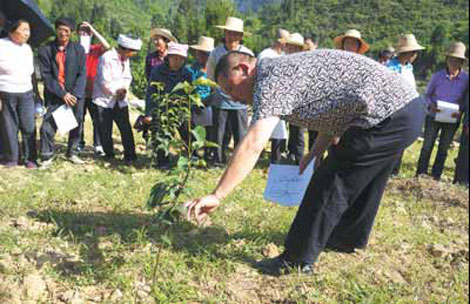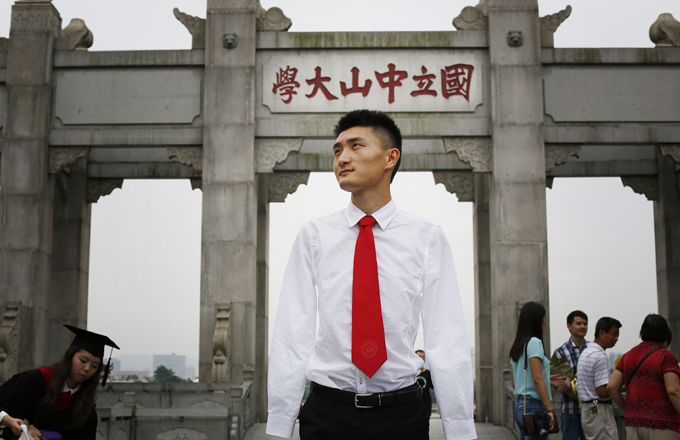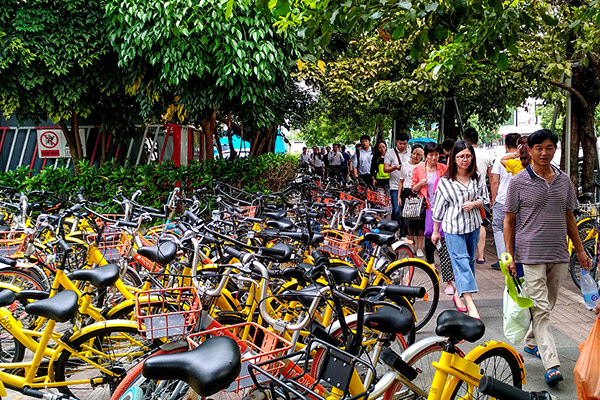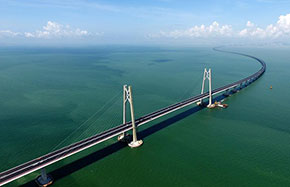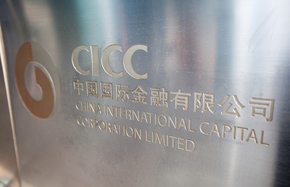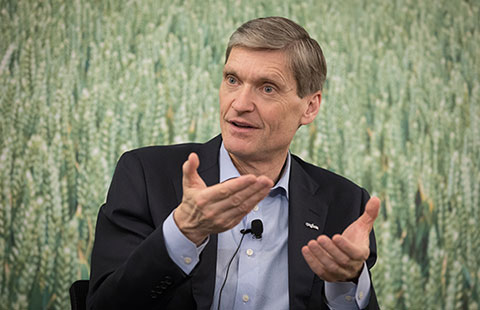Bayer's new methods bring farmers bumper crop
|
A farmer in southern China teaches farmers the company's new planting techniques. Provided to China Daily |
Chai Maoqing never thought that he would become one of the richest farmers in Longyou, a county in the western region of Zhejiang province that is renowned for its agriculture.
In 2008, he had just 600 square meters of land, but now he has more than 93 hectares, or 930,000 square meters of rice fields.
"For the past years, what I have learned is how vital the concept of sustainability is to us," said the 48-year-old farmer, adding that traditional pesticides and high labor costs are no longer the only ways to achieve high yields.
Last year, the yield of Chai's farmland reached about 14.23 metric tons per hectare, the highest in the whole region, and he earned an annual income of roughly 700,000 yuan ($107,692).
"The environmentally friendly and effective fertilizers played a key role in improving the production, through which I could largely reduce the frequency of pesticide use and save labor costs," Chai said.
Liao Hongliang, 39, another farmer in the county, said he has also benefited from sustainable farming.
"I received a training course in 2012, and this year I decided to use a new fertilizer," Liao said.
"Though the fertilizer costs more than traditional types, I am willing to pay for it after taking the productivity and high-quality rice into consideration."
Liao is expecting huge returns from a trial run of sustainable methods on 7 hectares of farmland.
"This summer, I will have a big harvest."
The stories of Chai and Liao are just two examples of German multinational Bayer Group's Much More Rice project in southern China.
As a global leader with core competitiveness in healthcare, crop science and high-tech materials, Bayer has always been committed to providing more innovative agricultural solutions to its Chinese customers, according to the company.
To date, Bayer has established around 300 experimental rice production bases in the country, covering regions in northeastern China, the Yangtze River Delta and southern China.
The company said the project aims to offer farmers systematic knowledge of advanced planting technologies that covers the entire process from sowing to harvest to achieve a better input-output ratio as well as ecological equilibrium.
The project marks the company's transformation from merely a product provider to a solution consultant that cares for the natural environment, plant health and high efficiency, according to the company.




